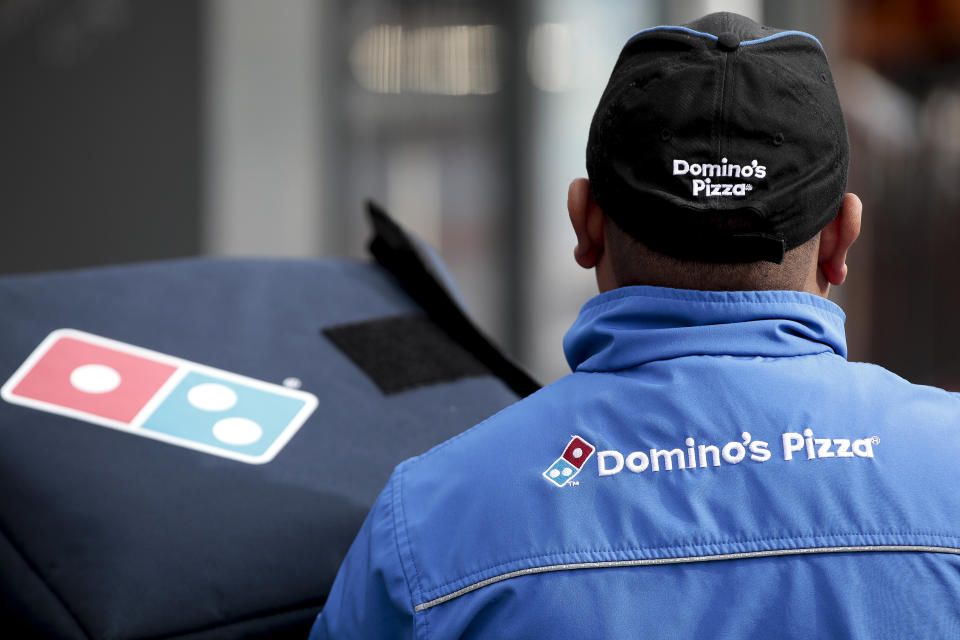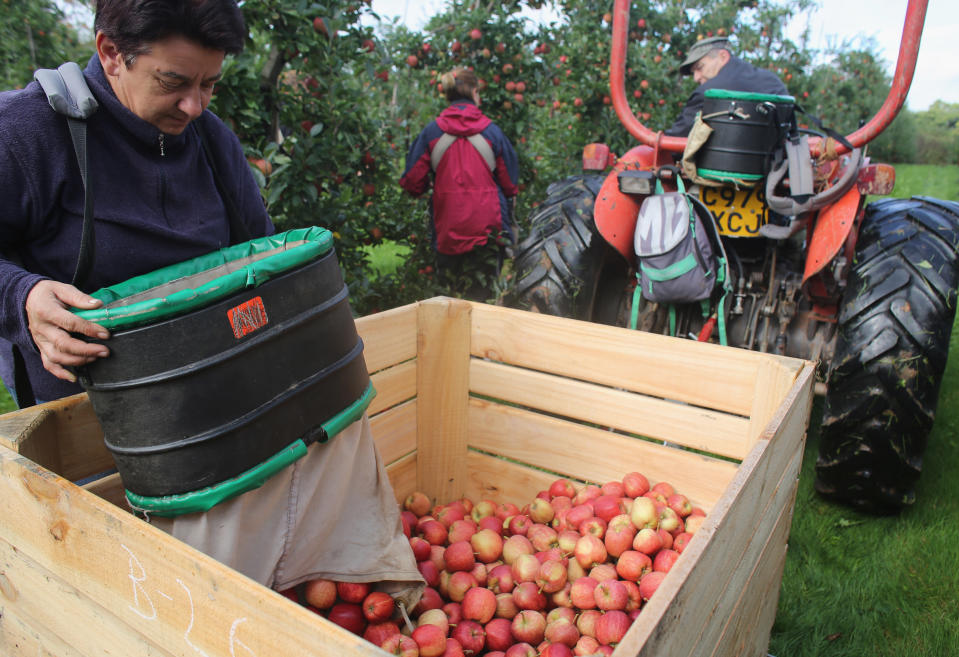Rethink Brexit immigration stance to keep pizzas coming, says Domino's boss

The boss of Domino’s Pizza chain has called on Theresa May to rethink the Brexit immigration stance to help “keep the pizzas coming”.
Simon Wallis said keeping the borders open to foreign workers was vital to future of his business and also thousands of others in the hospitality industry.
Wallis said half of Domino’s managers and others in leadership roles come from EU countries such as Portugal, Romania and Estonia.
Many of them began their career by hopping on a moped and delivering the pizzas, or working in a franchise preparing them.
However, with political rhetoric demanding that Britain “reclaim its borders” and talk of major restrictions on the number of migrants arriving here after Brexit in March 2019, chief operating officer Wallis said he feared the managers of the future will no longer be around to fill such roles.
“Not only have the people of Britain turned to migrants to make their lattes, build their kitchens and take care of their elderly, they’ve also relied on them to provide leadership.
“We need to properly consider how we’re going to supply our economy with the legions of team leaders who keep the tills ringing, the wheels turning and the pizzas coming,” he said.

Domino’s is embarking on an expansion drive, with plans to open 600 more stores over the next few years which will require more than 21,000 staff, but a fall in net migration means it will become increasingly difficult to find people to take up the roles.
It is also planning to recruit 5,000 over the busy Christmas period, when it expects to serve up over 9 million pizzas.
MORE: Bitter backlash from both sides over €55 BILLION Brexit divorce bill offer
Earlier this year, Domino’s, which employs around 35,000 staff across 1,000 stores, issued a call for young British staff to help plug the gap.
Wallis said that thus far, the debate on Britain’s looming labour shortage following Brexit has tended to focus on seasonal and casual workers, tradesmen and, professionals.
“But there is a fourth group which I believe is where the biggest hazard lies after Brexit,” he said.
“Many of these team leaders started out delivering pizzas, labouring or cleaning, but through ambition and hard work they’ve turned casual work into a career,” he added.
The British Hospitality Association said in April that the UK sector needed around 62,000 EU migrants every year if it is to maintain the status quo and drive growth.
MORE: Brexit on tap: JD Wetherspoon hands out 500,000 beer mats ‘exposing Brexit lies’
Wallis’s comments come after the chief executive of Chapel Down, an official wine supplier to 10 Downing Street, warned earlier this week that Britons will “starve” if the door is closed to foreign fruit pickers after Brexit.
He adds his voice to a chorus of business leaders and industry bodies that have issued stark warnings on how Brexit is affecting or will affect numerous sectors, including agriculture, aerospace, manufacturing, retail, airlines, construction and financial services.

 Yahoo Finance
Yahoo Finance 
